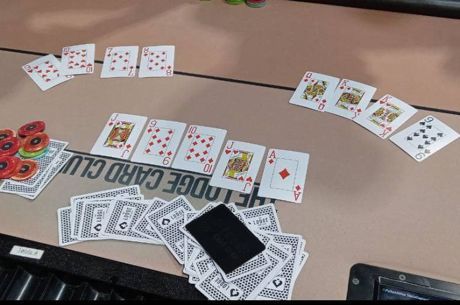10 of the Most Widely Believed Myths in Poker
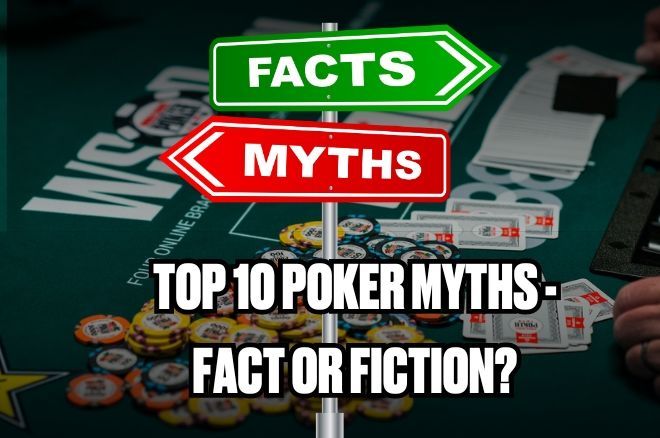
Poker is a game packed with myths, folk stories, and other figments of the imagination. Some people use these make-believe stories to justify their plays, for not winning a hand they think they should have, or for throwing caution to the wind and disregarding bankroll management.
Although there are dozens upon dozens of these tales, PokerNews has selected ten of the most widely believed myths in poker and tried to explain the thinking behind them. So, grab yourself a drink, pull up your favorite seat, and see how many of these poker myths you are guilty of believing.
Move Up in Stakes Where They Respect Your Raises
Every poker player has bemoaned their luck and been told, often tongue-in-cheek, to move up in stakes where opponents pay more respect to raises. While those who frequent the higher stakes game tend to be more knowledgeable and skillful and will take your show of strength into consideration, they are also more likely to call or three-bet you in position and then outplay you on later streets.
A sweeping statement to consider is that if you are unable to beat the stakes you are currently playing, it is unlikely you will fare better against more skillful opponents at higher stakes. Indeed, the most likely scenario is you'll lose even more money because the stakes and pots are larger.
Instead, analyze the hand where your opponent "didn't respect your raise" and see how you could have played it differently. You may find that you played the hand perfectly and your opponent misplayed the hand. Of course, the opposite could also be true.
Use losses as an excuse to learn and improve.
You Can't Bluff/Bluff-Catch at Low Stakes
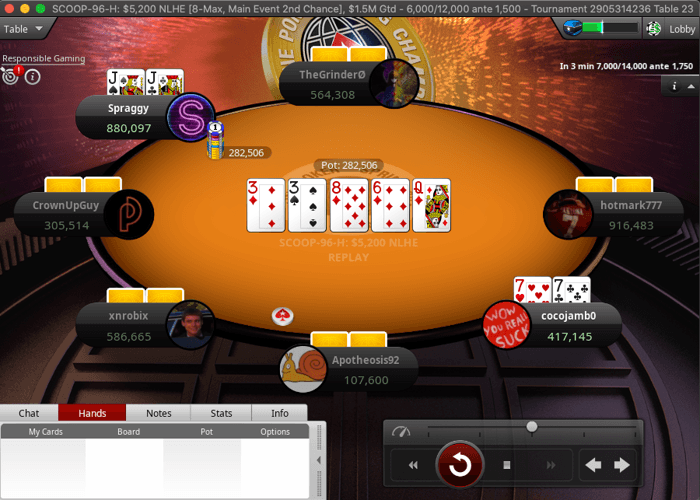
Although you should probably bluff and make crying calls less frequently at low stakes, saying you can't run a bluff at lower limits is incorrect. In fact, if you're not bluffing in certain spots, you will leave a lot of money on the table.
The reason the myth of being unable to bluff in low-stakes games refuses to go away is the fact that lower-stakes players are more likely to be calling stations and will often call bets if they have connected with the board in any way or have a straight or flush draw.
You can bluff, and bluff catch at lower stakes; you just need to choose the right opponent. Don't fire bluffs into someone who always calls. Likewise, don't try bluff catching on the river if you know an opponent only bets with strong hands.
Observing opponents is crucial to success in all forms of poker, but definitely reaps the rewards in lower-stakes games. Avoid getting tricky with less knowledgeable players who may not know what you are trying to achieve. Target players who see more than their hole cards, instead.
Play the Player, Not the Cards

Play the player, not the cards, is another long-running myth that has some truth behind it but can also get you into trouble if you overuse it. Sometimes, no matter how concrete you think your read is on an opponent, the stars will align, and they'll have a monster hand.
Players who think like this often come from a televised poker background, where they watch seasoned pros seemingly make soul reads on their opponents, four-betting with nothing and forcing folds. The problem with televised poker is that it is highly edited to make it exciting for the viewers, and it often lacks context. Those seemingly crazy pros may have been sitting with one another for several hours and have picked up on tells and tendencies.
By all means, occasionally play the player, but stick to playing the cards for the most part, especially at the lower stakes.
Running It Twice is Better for the Guy Who's Behind
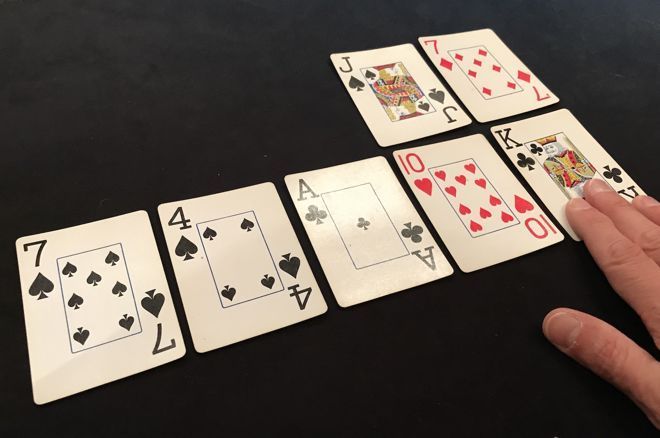
Most online poker sites give you the choice of whether to run a hand twice if one or more people are all-in during a cash game. You may be surprised to learn that running it twice does not favor the player who is behind, nor does it favor the player who is in front. Running it twice is 0EV.
Although running it twice (or three times, or four times) does not affect expected value, it does reduce variance, which is a different beast entirely. In short, running it twice does not favor any player's expected value.
There's Always an Ace on the Flop When You Have Pocket Kings
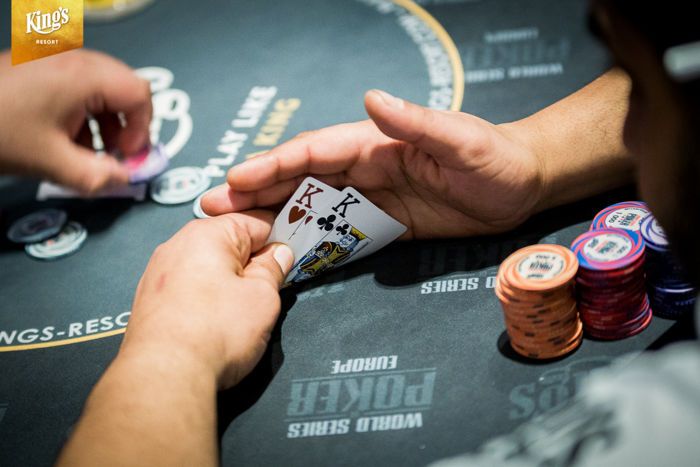
We have all played many hands where we have pocket kings, there's a raise and a three-bet, and we go to the flop. An ace is one of the first three community cards, and we come out shouting, "there's always an ace on the flop when I get dealt pocket kings." It can seem that way, but it isn't true! However, it does happen quite frequently.
An ace will appear on the flop approximately 22% of the time you hold pocket kings. If you hold pocket queens, a king or an ace will rear its ugly little head more than 41% of the time. I
People tend to forget about the other 78% of the time they go to the flop with kings and don't see an ace. When they do see an ace on the flop when they have kings in the hole, they remember it because they either lose a pot or win less money than they thought they should, leading to confirmation bias that an ace always flops in this situation.
You Need to be a Math Wizard to Win at Poker
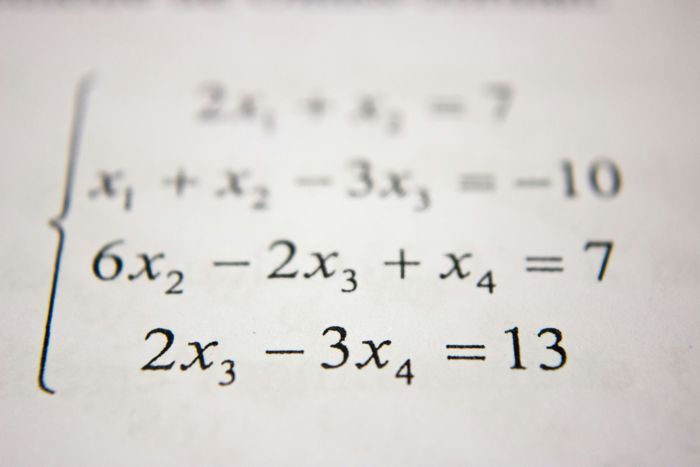
While it helps to be a math wizard if you want to become a winning poker player, it is not essential that you are one. Sure, you need to know about odds and probabilities and know how to make a few calculations on the fly, but the basic math required to see you through most poker games is not that complicated.
Even if you progress to higher stakes or start using solvers to play a Game Theory Optimal (GTO) style of play, you don't need to be a math whiz. The calculations for GTO are complex but you can use solvers and learn outcomes for common spots without needing to fully understand why a play is mathematically correct.
Some successful players don't use solvers or similar tools yet manage to hold their own in cash games and tournaments.
Older Players Always Have It

It is a common misconception that if an older player bets or raises, they always have a strong hand or the hand that they are trying to represent. Such a misconception could not be further from the truth. Younger players, often from an online poker background, wrongly believe this, and doing so allows these older folk to bluff them off pots at an alarming rate.
The misconception stems from the assumption that older players play an ABC style of poker or are not capable of thinking outside of the box, which isn't only incorrect but also quite offensive to the older grinders among us.
Do you really believe that if you are in your early 20s and are facing a raise from someone in their 50s or 60s, they are incapable of bluffing or making a play? If so, the likes of Barny Boatman, Phil Hellmuth, and Billy Baxter would like a quiet word with you.
Deuces Never Loses

Deuces never loses is a myth that only exists because it rhymes. Nothing else, really. Confirmation bias dictates that anyone who has won an all-in pot with pocket deuces in their hand will remember it because it means they have either sucked out on an opponent or won a coin flip during an important hand. They forget about all the times they shoved with deuces and lost.
This myth is along the same lines as claiming you always flop a set with pocket sevens or similar. Pocket deuces will find themselves against a higher pocket pair more than 41% of the time at a nine-handed table, and it is still more than 5% of the time when you are playing heads-up. However, deuces almost always loses doesn't have the same ring to it, does it?
Online Poker is Rigged
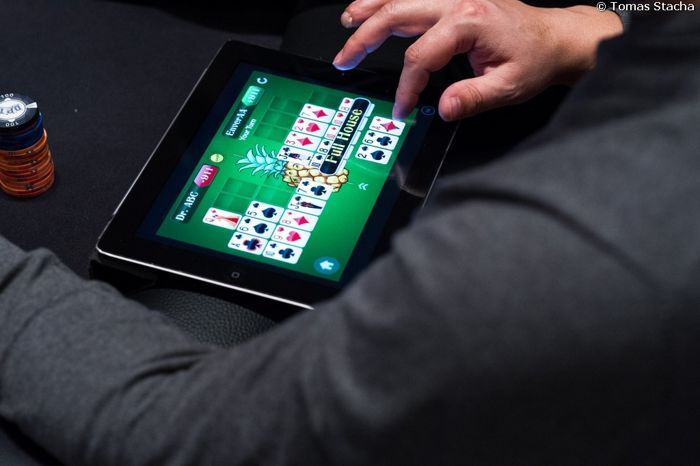
The biggest and most commonly talked about poker myth is that online poker is rigged. No, it isn't! Claims of online poker being rigged stems from the speed at which online games are dealt.
In a casino, you will be lucky to play between 20-30 hands per hour and are limited to playing on a single table. If you played for 40 hours in a week, you'd play between 800 and 1,200 hands.
Compare that to online poker, where nine-handed games are usually dealt at around 75 hands per hour. Playing a single table for 40 hours would see you record 3,000 hands. Play four tables at once, and you have 12,000 hands under your belt, or 10 times the number of hands a live grinder plays during the same period.
PokerStars Head of Game Integrity says: "Trust is Everything"
Poker throws up some weird and wonderful hands, and you are more likely to witness something that seems like an anomaly the more hands you play.
If you tossed a coin ten times, you'd expect it to land on heads and tails five times each. However, toss it 1 billion times and you'd see some seemingly crazy patterns, even having landing on heads 10,000 times in a row. But after that 1 billion coin tosses, the outcomes would converge on being 50-50.
Furthermore, online poker sites gain nothing from rigging games because they charge a capped rake regardless of who wins and who loses. Their business makes vast sums of money, so why would they risk that almost guaranteed income stream and their reputation for a few extra cents or bucks here and there?
Some of the best poker sites, such as PokerStars publish the statistics of their Random Number Generator (RNG), and, to date, nobody has found any statistical anomalies. Online poker is not rigged; maybe you should play stakes where they respect your raises. Actually, don't do that.





